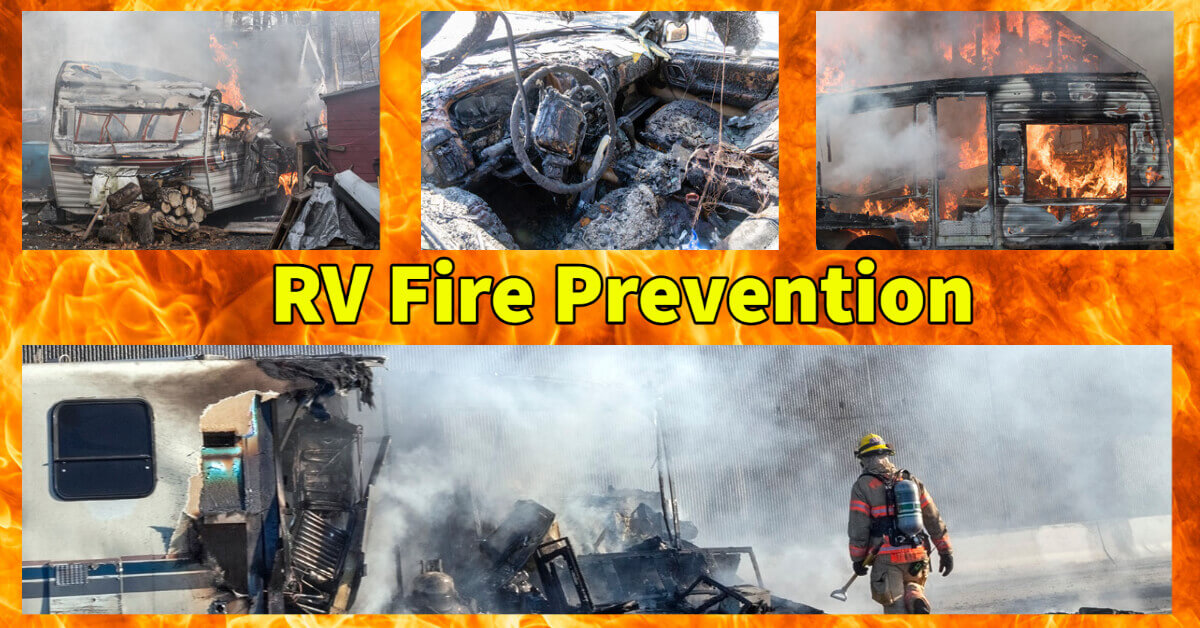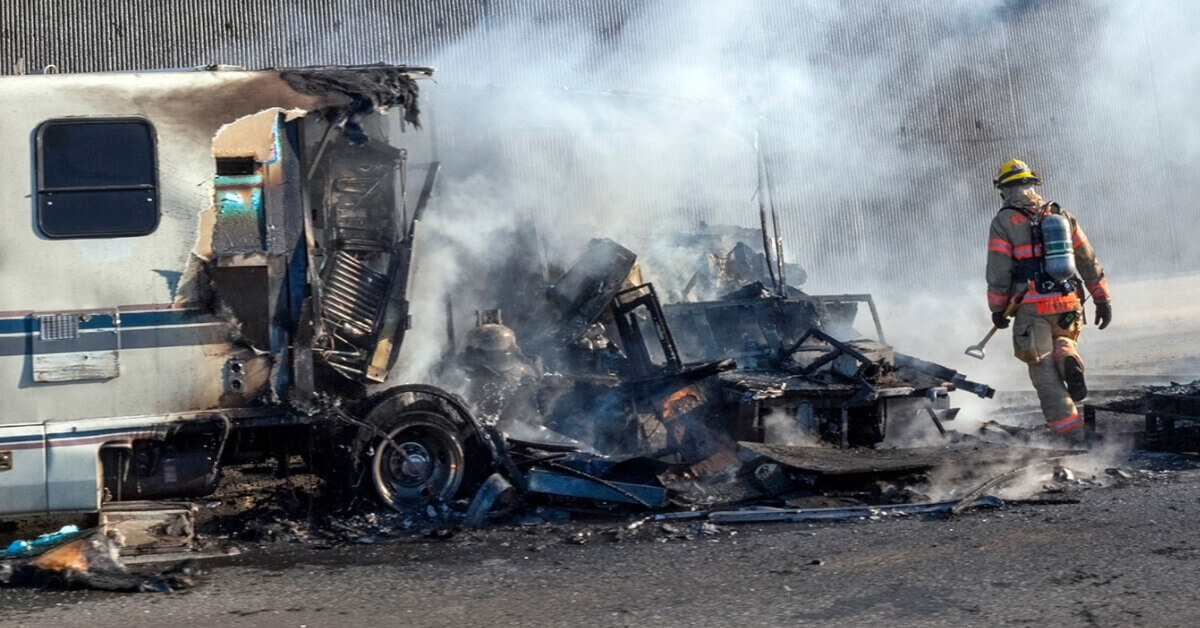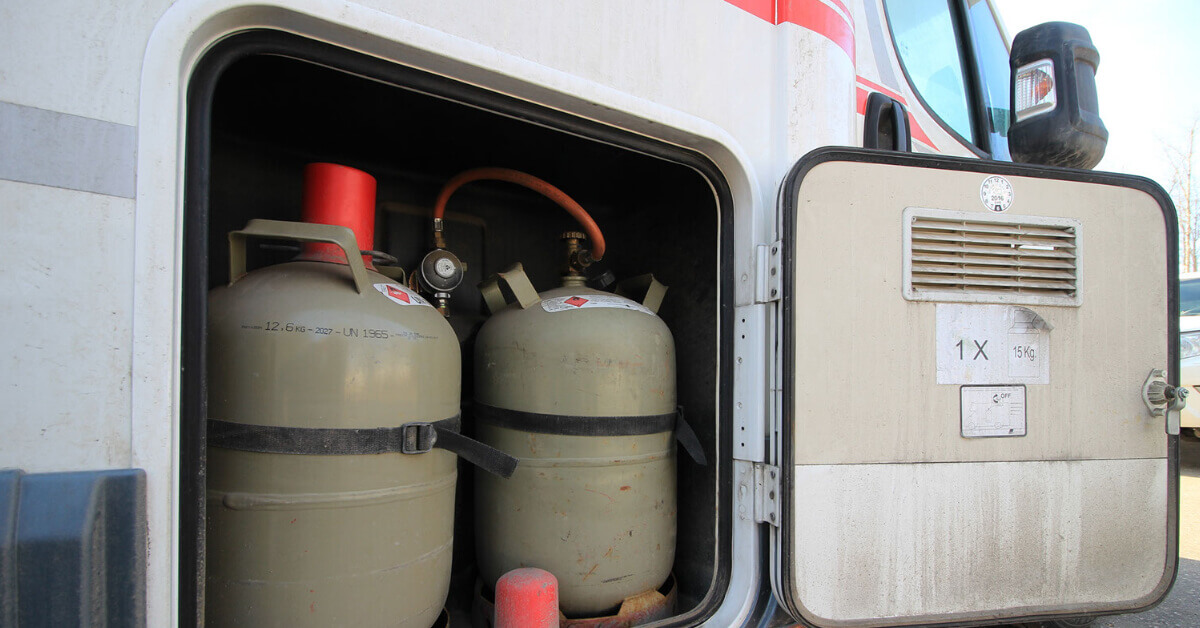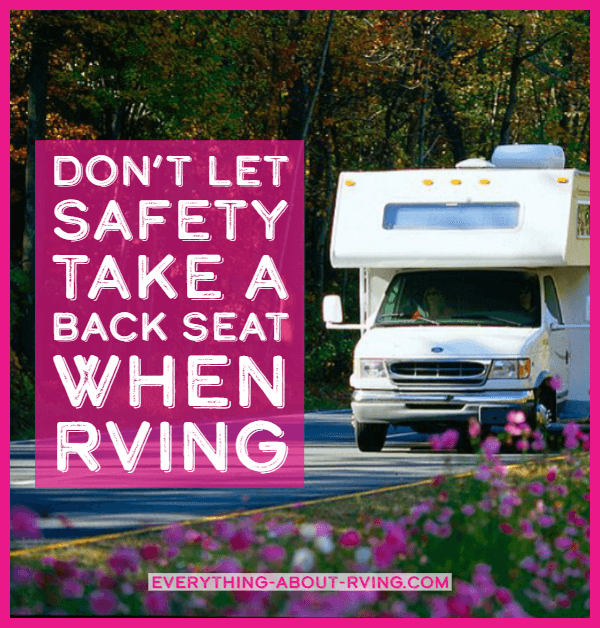- Home Page
- RVing Tips & Tricks
- RV Fire Prevention Tips
RV Fire Prevention Tips
Learn these RV fire prevention tips to keep you and your family safe on your next RV road trip.
Traveling in an RV can be an exciting and fun experience. However, RV fires can pose a severe risk to your safety and investment. Fortunately, many RV fires are preventable if you take the proper precautions. In this article, we'll discuss common causes of RV fires and share the essential RV fire prevention tips to help you prevent them.
Common Causes of RV Fires
Propane System Leaks
Propane is a common fuel source for RVs, powering appliances like stoves, refrigerators, and water heaters. However, propane leaks can lead to fires or explosions. Regular inspection and maintenance of your propane system are crucial to prevent leaks.
Electrical Issues
Faulty wiring, overloaded circuits, and damaged electrical components can all cause fires in your RV. It's important to address any electrical issues as soon as they arise, even if they initially seem minor.
Engine and Wheel Fires
Overheating engines, brakes, and underinflated or damaged tires can lead to fires in the engine compartment or near the wheels. Regular maintenance checks can help prevent these types of fires.
Cooking and Appliance Fires
Unattended cooking and malfunctioning appliances are common causes of RV fires. Always monitor your cooking and ensure all appliances are in proper working order.
Essential RV Fire Prevention Tips
Inspect and Maintain Your RV's Propane System
Regularly inspect your propane system for signs of wear, corrosion, or damage. Replace any damaged components and have your system serviced by a professional if you suspect a propane leak. Additionally, always close the propane tank valve when not in use.
Address Electrical Issues
Inspect your RV's electrical system regularly for signs of wear or damage, and have any issues repaired by a professional. Be mindful of your electrical load and avoid overloading circuits. Use surge protectors and replace damaged cords and outlets.
Maintain Your RV's Engine and Wheels
Have your brakes serviced regularly to avoid overheating and wear.
Practice Safe Cooking Habits
Never leave your cooking unattended and always turn off burners when they are not being used. Keep a fire extinguisher nearby and ensure that you have a working smoke detector in your RV's kitchen area. Avoid using cooking appliances that produce open flames or generate excessive heat.
Install and Maintain Smoke and Carbon Monoxide Detectors
Install smoke and carbon monoxide detectors in your RV and test them regularly to ensure they're working properly. Replace batteries at least once a yyear and replace the detectors themselves according to the manufacturer's recommendations.
Have Fire Extinguishers on Hand
Equip your RV with fire extinguishers suitable for different types of fires (A, B, and C). Keep them readily accessible and know how to use them properly. Regularly check the expiration dates and replace them as needed.
Create and Review an Emergency Escape Plan
Develop an emergency escape plan for your RV, including multiple exit points such as doors and windows. Familiarize yourself and your traveling companions with the escape plan, and practice it regularly to ensure everyone knows what to do in case of a fire.
Conclusion
RV fire prevention is important for the safety of you and your loved ones while on the road. By understanding the common causes of RV fires and taking the necessary steps to prevent them, you can minimize the risk and enjoy a safer RV experience. Regular maintenance, safe cooking practices, and the proper safety equipment can make all the difference in preventing a disastrous RV fire.
Frequently Asked Questions
How often should I inspect my RV's propane system for leaks?
How often should I inspect my RV's propane system for leaks?
Inspecting your propane system before every trip and periodically during your journey is a good idea. Regular inspections will help you catch potential issues before they become dangerous.
What type of fire extinguisher should I have in my RV?
What type of fire extinguisher should I have in my RV?
An ABC fire extinguisher is recommended for RV use, as it can handle most types of fires, including those involving combustible materials, flammable liquids, and electrical equipment.
How often should I test my RV's smoke and carbon monoxide detectors?
How often should I test my RV's smoke and carbon monoxide detectors?
Your RV's smoke and carbon monoxide detectors must be tested once a month to ensure they are working correctly. Replace batteries annually and follow the manufacturer's recommendations for replacing the detectors themselves.
How can I prevent my RV's engine from overheating?
How can I prevent my RV's engine from overheating?
Regular maintenance, including checking coolant and oil levels, can help prevent engine overheating. Additionally, avoid overloading your RV and be mindful of driving conditions that may put extra strain on your engine, such as steep inclines or high temperatures.
What should I do if I suspect that there is a propane leak in my RV?
What should I do if I suspect that there is a propane leak in my RV?
If you suspect a propane leak, turn off the main propane valve, open windows and doors to ventilate the area, and evacuate the RV. Do not use any open flames or electrical devices, as they can cause a spark that could ignite the propane. Once you are safely outside, call a professional to inspect and repair the leak.






Comments
Do you have a comment on this topic? You can leave your comment in the box below.